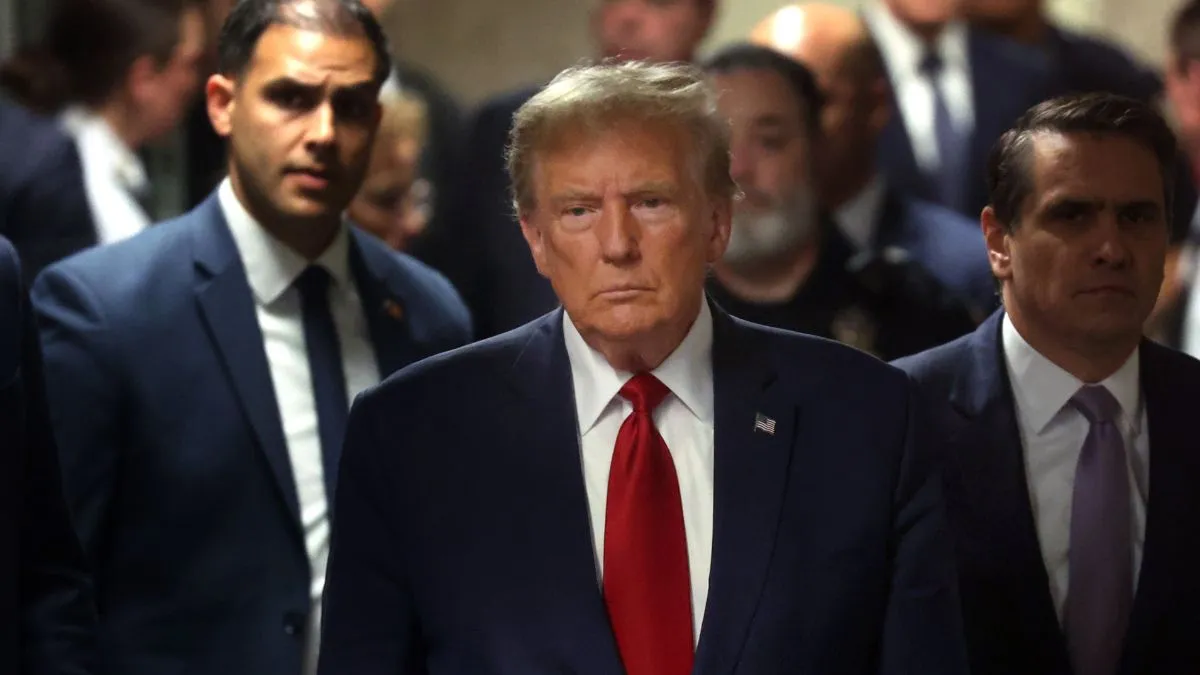In the annals of American politics, few figures have elicited as much controversy and debate as Donald Trump. From his unconventional rise to power to his polarizing policies and personal conduct, Trump remains a lightning rod for criticism and adulation alike. Nowhere is this paradox more evident than in the realm of Christian support for the former president.
One of the most confounding aspects of Trump’s relationship with the Christian community is the stark dissonance between his professed faith and his flagrant disregard for moral principles. Despite claiming to uphold Christian values, Trump’s track record is littered with behavior that seems diametrically opposed to the teachings of Christianity.
Take, for example, his well-documented history of marital infidelity and alleged sexual misconduct. Trump’s extramarital affairs and his reported attempts to cover them up stand in stark contrast to the sanctity of marriage and the virtue of fidelity preached by Christian doctrine. The scandal involving adult film star Stormy Daniels, and the ensuing legal battles, serve as a poignant reminder of Trump’s moral failings.
Moreover, Trump’s unabashed pursuit of wealth and power, often at the expense of others, flies in the face of Jesus’ teachings on humility, charity, and compassion. His reputation as a shrewd businessman, coupled with allegations of unethical business practices and financial impropriety, casts doubt on his commitment to the principles of honesty and integrity espoused by Christianity.
Trump’s temperament and behavior further underscore the contradiction between his actions and Christian ideals. His thin-skinned reactions to criticism, his penchant for boasting and self-aggrandizement, and his tendency to lash out in anger and resentment stand in stark contrast to the virtues of patience, humility, and forgiveness championed by the Christian faith.
Yet, despite these glaring inconsistencies, Trump has managed to cultivate a devoted following among certain segments of the Christian community, particularly among the rural religious right. This support, fueled by a mix of political expediency, cultural affinity, and strategic messaging, has enabled Trump to maintain a stronghold within the Republican Party and mobilize a formidable base of supporters.
A recent manifestation of this alliance between Trump and his Christian base comes in the form of his endorsement of the “God Bless the USA Bible,” produced by country singer Lee Greenwood. The irony of Trump endorsing a Bible—a symbol of moral rectitude and spiritual guidance—is not lost on observers, given his own checkered history and apparent lack of deep religious conviction.
In a characteristic display of self-promotion and bravado, Trump touted the Bible as a “beautiful book” and extolled its virtues in a video posted to his social media platform. However, his remarks were tinged with the familiar themes of victimhood and division, as he warned of Christians under siege and called on his followers to resist perceived censorship and discrimination.
Ironically, even as Trump seeks to portray himself as a defender of religious freedom, he finds himself embroiled in legal battles that raise questions about his own ethical conduct. Charges of falsifying business records and hush money payments to silence allegations of extramarital affairs cast a shadow over Trump’s claims to moral authority and spiritual leadership.
In the end, the dilemma of Christian support for Trump reflects a broader tension within American society—a clash between professed values and political expediency, between faith and power. As Christians grapple with the complexities of their allegiance to a flawed leader, they are forced to confront uncomfortable truths about the nature of morality, leadership, and the enduring struggle between sin and redemption.


